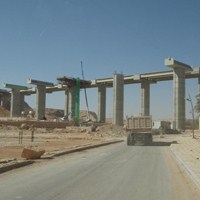When Mohammed Amir Waheed Sirkar, a migrant Bangladeshi electrician employed to help build New York University’s new campus in Abu Dhabi, joined a strike to protest working conditions there, he ended up in prison and was subsequently deported. According to the New York Times, other workers at the site reported paying recruitment fees of up to a year’s wages just to get their jobs; working 11- or 12-hour days, 6-7 days a week; and living with 15 men in rooms meant for four.
The international labor migration system is rife with this type of exploitation and abuse—not just in the Middle East but in many parts of the world. Far too often, people suffer extreme conditions and risk their lives to secure work abroad, usually to support siblings, children and parents back home.
It doesn’t have to be this way.

